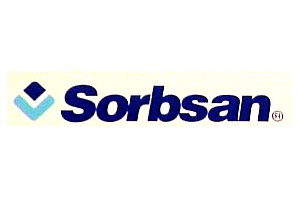Chemist.net Cookie Policy : We use cookies to enhance your user experience. To find out more please view our cookie policy
Sorbsan 5 x 5 cm Surgical Dressings
SKU :
190579
PIP-Code :
190579
EAN :
5060007192011
In Stock (usually dispatched in 2-3 working days)
SKU
190579
£12.50
£1.25 per dressing
Browse our full range of:
Description
Sorbsan Surgical Dressings
Sorbsan Surgical Dressings are made from the calcium salt of alginic acid, prepared as a textile fibre, and presented as a loose `rope' or packing for cavities, a ribbon for narrow wounds or sinuses, and a flat non-woven pad for application to larger open wounds. When in contact with serum, wound exudate, or solutions containing sodium ions, the insoluble calcium alginate is partially converted to the soluble sodium salt, and a hydrophilic gel is produced, which overlays the wound and provides a micro-environment that is believed to facilitate wound healing.
Sorbsan Surgical Dressings may be applied to exuding lesions including leg ulcers, pressure areas, donor sites, and most other granulating wounds but for deeper cavity wounds and sinuses, the packing and ribbon forms are generally preferred. The dressing also appears to be of value as an adjunct to the systemic treatment of infected or malodorous wounds and for the management of painful wounds when removal of other more traditional dressings causes unacceptable levels of pain or trauma.
Directions
Sorbsan Surgical Dressing is placed onto the surface of the wound and covered with a sterile secondary dressing held in place with surgical tape or a bandage as appropriate. The nature of the secondary dressing will be governed by the condition of the wound. If large quantities of exudate are anticipated, a simple absorbent dressing pad may be required; but as the wound heals and less exudate is produced, a thinner pad bearing a plastic film of low adherence may help to conserve moisture and prevent the wound drying out too quickly.
Because the alginate fibre reacts with sodium ions to form a soluble gel, the dressing may be removed by irrigation with sterile normal saline. This may be accomplished without causing either damage to the wound or pain to the patient. It has been reported that a small percentage of patients experience a mild `drawing' or `burning' sensation immediately after the application of an alginate dressing to a dry wound bed. This sensation, which is usually transient, is thought to be due to the hydrophilic nature of the dressing causing temporary localised drying of the surface of the wound. This discomfort may generally be prevented by moistening the surface of the wound with a small quantity of sterile normal saline prior to the application of the dressing.
